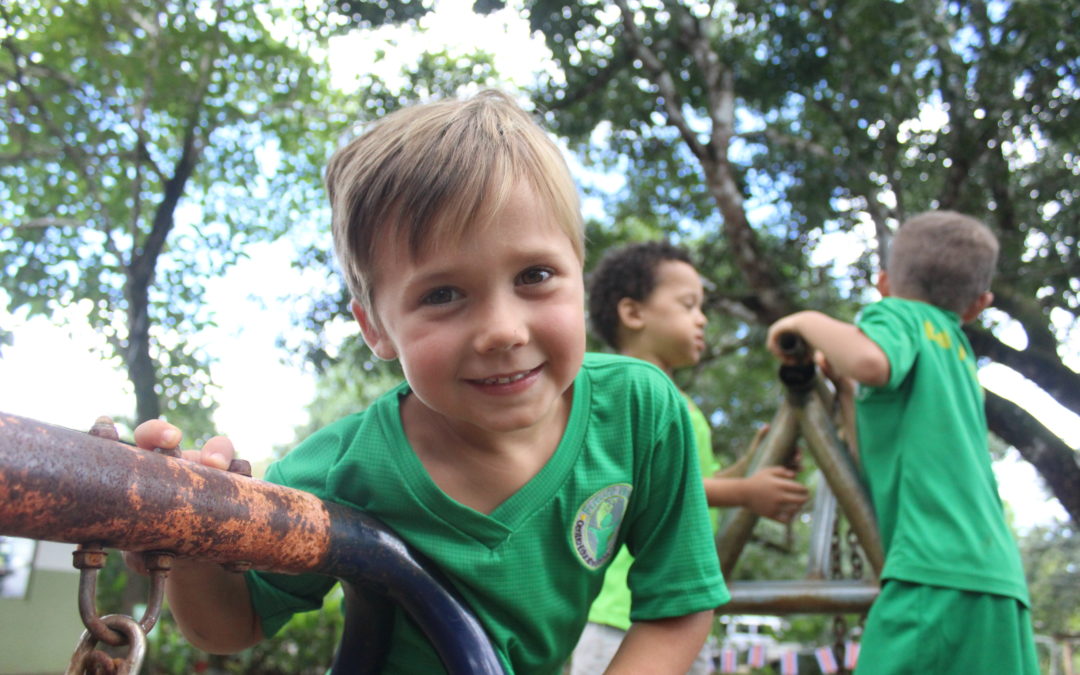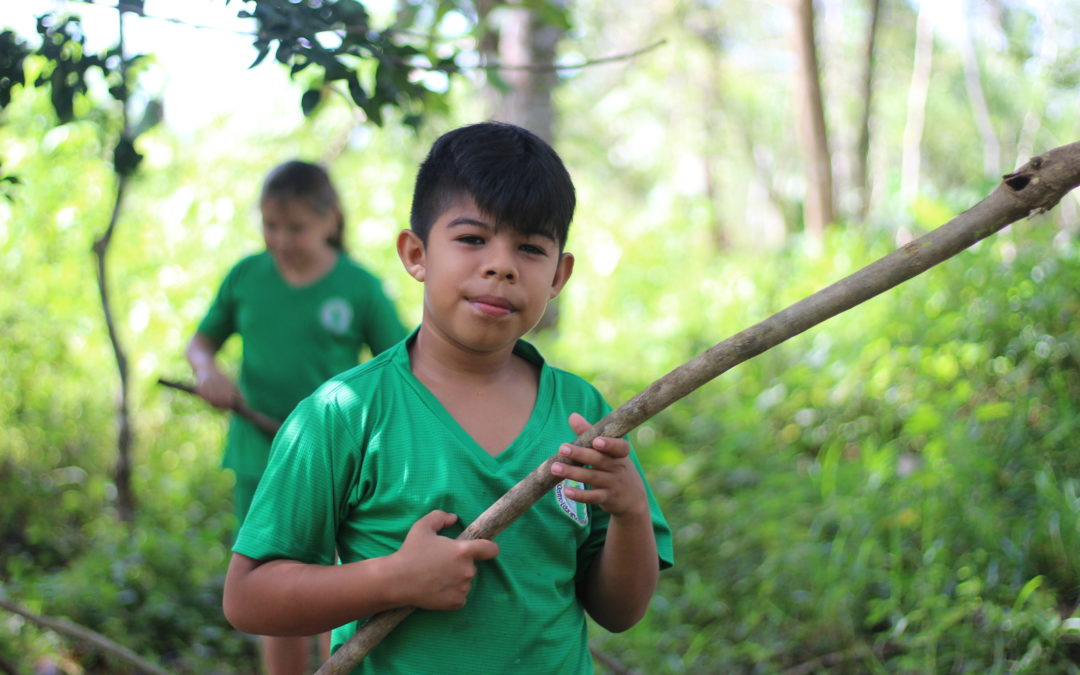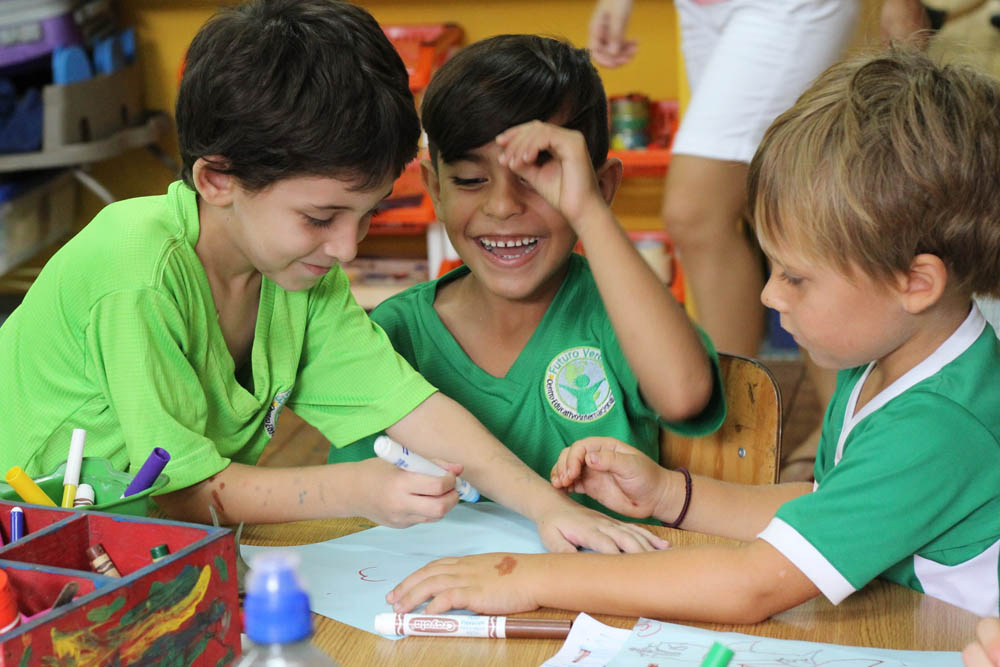
by David Brookshire, MPH/ School Counselor & Special Education Case Manager | Jan 19, 2018

Iniciando el nuevo año lectivo, nuestra mentalidad va cambiando a medida que regresamos a un horario regular. Con nuevas experiencias y expectativas por delante, adoptar algunas rutinas en el hogar puede resultar útil para una mayor estructura y tranquilidad mental. Gracias a algunas prácticas básicas, las rutinas pueden ayudar a toda la familia. Una rutina es, simplemente, una secuencia de acciones repetida regularmente que ayuda a todos a saber quién debe hacer qué, cuándo, en qué orden y con qué frecuencia.
Ejemplos de rutinas
- Por la mañana: Al prepararse para el regreso a la escuela, es beneficioso comenzar a levantarse a una hora regular todos los días. Esto ayuda a nuestros cuerpos a establecer un ritmo natural que hace que sea más fácil de adaptarse una vez que comience el año lectivo. La costumbre de despertar a cierta hora, alistarse para el día, desayunar, etc., facilita el cambio y reduce el nivel de estrés.
- Después de clases: Establecer un hábito con respecto a lo que sucede después de clases, también puede facilitar el transcurso de la tarde. Consumir un refrigerio, realizar algunos deberes o terminar tareas son ejemplos de cómo establecer una estructura después de clases.
- Por la tarde: Cenando juntos como familia, fortalecemos las relaciones familiares y proporcionamos un espacio para la vinculación. Además, con una hora regular de acostarse y unas tareas de preparación para la cama, es fácil saber qué esperar. De tal manera, el cuerpo y cerebro van anticipando que es hora de comenzar a descansar. Practicar ello regularmente hace que sea más fácil evitar el estrés y el conflicto cuando comenzamos un nuevo horario escolar. Dormir lo suficiente se convierte en una prioridad desde ya para que podamos funcionar de la mejor manera posible durante el día.
Beneficios de las rutinas
- Seguridad y previsibilidad: Un horario organizado proporciona seguridad a los niños dado que es fácil saber qué esperar. La previsibilidad de las rutinas reduce el estrés y elimina el aspecto impredecible de alistarse.
- Sentido de la responsabilidad: Cuando los niños conocen las expectativas y practican seguirlas con frecuencia, adquieren un sentido de responsabilidad que puede aumentar la confianza y conducirles a tomar riesgos seguros y saludables a la hora de enfrentar los desafíos diarios.
- Administración de tiempo eficiente: Al establecer rutinas regulares y convertirlas en un hábito, ahorramos tiempo y dejamos espacio en nuestro calendario para otras actividades.
Cuando las rutinas se establecen y practican con regularidad, los padres nos sentimos bien al proporcionar a nuestros hijos un sentido de logro y responsabilidad. Ahorramos tiempo, evitamos conflictos y fortalecemos los lazos familiares. Esto nos ayuda a todos a transicionar exitosamente cuando empezamos el nuevo año lectivo.

by David Brookshire, MPH/ School Counselor & Special Education Case Manager | Jan 19, 2018

As we enter the new school year, we begin to shift our mindsets as we return to a regular schedule. With new experiences and expectations on the horizon, it can be helpful to embrace some routines at home for added structure and peace of mind. With a few basic practices, routines can help the whole family. A routine is simply a sequence of actions followed regularly that helps everyone know who should do what, when, in what order, and how often.
Examples of Routines
- Morning: To prepare for coming back to school, it is beneficial to begin waking up at a regular time each day. This helps our bodies establish a natural rhythm that makes it easier to adjust once the school year begins. By getting in the habit of waking up at a certain time, getting ready for the day, and eating breakfast, etc., we adapt to change with more ease and less stress.
- Afternoon: Getting in the habit of what happens after school can also provide ease to the flow of the afternoon. Having a snack, doing some homework, or finishing chores are all examples of ways to establish structure in the afternoon.
- Evening: By having dinner together as a family, we strengthen family relationships and provide a space for bonding. Also, with a regular bedtime and set of tasks for getting ready for bed, it’s easy to know what to expect and can provide cues for a body and brain that it’s time to begin resting. Practicing this regularly makes it easier to avoid stress and conflict when we begin a new school schedule. Getting enough sleep becomes a priority so we can be our best during the day.
Benefits of Routines
- Safety and Predictability: An organized schedule provides children with a sense of safety because it is easy to know what to expect. The predictability of routines reduces stress and takes the guesswork out of getting ready.
- Sense of Responsibility: When children know what is expected and practice it regularly a sense of responsibility is gained that can boost confidence and make it easier for them to take safe, healthy risks as they face daily challenges.
- Efficient Time Management: By establishing regular routines and making them a habit, we save time and allow space in our schedule for other activities.
When routines are established and practiced regularly we, as parents, feel good about providing our kids with a sense of accomplishment and responsibility. We save time, avoid conflict, and strengthen family bonds. This helps all of us make the transition as we enter the new year.

by David Brookshire, MPH/ School Counselor & Special Education Case Manager | Dec 28, 2017

Breaks from the routine are welcomed opportunities to rest and recharge. They can also be a chance to reconnect with our children by using the school vacation to spend quality time together. Here are 4 ideas for creating a positive experience during this school break.
- Intentional Engagement: One of the best ways to engage with our kids is to create opportunities for genuine connection with our kids. This could be as simple as going for a walk together, having dinner as a family, or scheduling family game night. Whether on a family vacation or during time at home, any positive, targeted attention can strengthen that bond and let children of any age know that they are cared for. It also supports their social-emotional development and gives them the tools they need to interact with others as they go about their day. With this basic need fulfilled, kids feel more confident, more stable, and more at ease.
- Reading: Taking time to read with our kids and giving them guidance to read independently, ensures that their brains stay active and that their learning growth doesn’t regress. This is especially true for students in the primary grades as they are actively and continuously acquiring reading skills. To help them maintain their progress, providing as little as 20 minutes of daily independent reading gives them what they need. It can also prove to be a great way to connect with them as we inquire about what they are reading and ask them questions to gauge their comprehension and share common interests.
- Balanced Use of Electronics: While it’s nice during vacation to indulge in some of the activities where there isn’t time during the normal school schedule, it’s important to consider some of the implication of too much screen time for developing brains. By limiting technology use, we can help our children develop socially while also supporting their brain development. Scientific research shows that increased technology use can lead to difficulty sleeping, decreased empathy, and shorter attention spans (Greenfield 2015). This can have a negative effect over time and create imbalance. Recent studies even show that the effect of digital screen time on developing brains is almost exactly the same as the use of narcotics. With neurotransmitters disrupted, it is difficult for the brain to recover and adapt. Over time, this can have a lasting impact on the mental and emotional health of young children.
- Regular Physical Activity: Providing regular reminders and opportunities for physical fitness can support our children’s physical and mental well-being during a long vacation. Research shows that regular exercise contributes to the growth of new brain cells, particularly in the learning center of the brain. It also helps us keep a balanced emotional state, not to mention all of the physical benefits.
By mindfully connecting and proactively creating positive experiences with our children, we can guarantee an enjoyable school vacation that provides an opportunity for bonding that will carry forward long after the break is over.

by David Brookshire, MPH/ School Counselor & Special Education Case Manager | Dec 28, 2017

Un descanso de la rutina provee una agradable oportunidad para descansar y recargar las pilas. También puede brindar una oportunidad de conectarse nuevamente con sus hijos si es que logra usar las vacaciones para poder pasar tiempo de calidad juntos como familia. Les comparto 4 ideas para asegurar experiencias positivas durante las vacaciones escolares.
- Interacción intencional: Una de las mejores maneras de interactuar con nuestros hijos es a través de la creación de oportunidades auténticas para verdaderamente conectarnos con ellos. Puede ser tan sencillo como salir juntos a caminar, cenar en familia o apartar tiempo para una noche de juegos de mesa. Cualquier interacción intencional y positiva, sea durante un viaje familiar o simplemente durante un día libre en la casa, puede fortalecer la conexión que tenemos con nuestros hijos y les envía el fuerte mensaje que nos importan. Estas interacciones intencionales también apoyan a su desarrollo socio-emocional y les brinda las herramientas que necesitan para exitosamente interactuar con otros durante el transcurso del día. Cuando se les cumplen sus necesidades básicas, nuestros hijos sienten más confianza, son más estables y tienen vidas más cómodas.
- Lectura: Tomar el tiempo para leer con nuestros hijos y animarlos a leer independientemente asegura que sus cerebros se mantienen activos y previene regresión de aprendizaje durante las vacaciones. Es especialmente importante para los estudiantes de primaria ya que están activa y continuamente adquiriendo destrezas de lectoescritura. Para ayudarles a mantener su progreso, proveer por los menos 20 minutos al día de lectura independiente les brindará el tiempo y la práctica que necesitan. También puede ser una excelente manera de conectarse con nuestros hijos conforme interactuamos con ellos referente a su lectura, haciéndoles preguntas para probar su comprensión y para compartir intereses relacionados al cuento.
- Uso equilibrado de la tecnología: Es muy agradable permitirse durante las vacaciones algunas actividades que nuestro horario normal no permite, sin embargo es importante considerar que usar mucho las pantallas tiene impicaciones en el cerebro de nuestros hijos que aún se están desarrollando. Cuando imponemos limites referente al uso de tecnología, ayudamos a nuestros hijos a desarrollar sus destrezas sociales al mismo tiempo que apoyamos al óptimo desarrollo del cerebro. Las investigaciones científicas demuestran que el aumento del uso de la tecnología puede causar dificultades con el sueño, disminución de empatía y prevalencia de atención más corta (Greenfield 2015). Esto puede causar un efecto negativo y un desarrollo desequilibrado en nuestros hijos durante lo largo de los años. Las investigaciones más actualizadas hasta demuestran que el efecto del tiempo ante las pantallas en un cerebro aun en desarrollo es sumamente parecido al efecto del uso de los narcóticos. Cuando hay interrupciones de los neurotransmisores, es difícil para el cerebro recuperarse y adaptarse. Con el paso del tiempo, esto puede causar un impacto duradero en la salud mental y emocional de los jóvenes.
- Actividad física regular: Proveer recordatorios regulares y oportunidades para ejercicio físico pueden apoyar a los niños a mantenerse saludables físico y mentalmente durante las vacaciones largas. Las investigaciones revelan que el ejercicio regular contribuye a la creación de nuevas células cerebrales, particularmente en la parte del cerebro dedicado al aprendizaje. También nos ayuda a mantener un estado emocional estable, un beneficio adicional a los beneficios físicos.
Cuando nos conectamos de una manera significativa y proactiva a través de las experiencias positivas y creativas con nuestros hijos, podemos garantizar vacaciones escolares agradables y que proveen una oportunidad para una conexión que continuará más allá que el tiempo de las vacaciones escolares.

by David Brookshire, MPH/ School Counselor & Special Education Case Manager | Nov 1, 2017

Our IB learner profile value for the month of November is “Reflective.” This value is described by the International Baccalaureate organization in the following way:
“They give thoughtful consideration to their own learning and experience. They are able
to assess and understand their strengths and limitations in order to support their learning
and personal development (IB 2017).”
As the 2017 school and calendar are coming to an end, we inevitably reflect on the year behind us. The yearly cycle offers an opportunity for us to take inventory on what went well and what could be even better as we set goals for the coming year. In learning and education, we have several of these cycles to take advantage of. The daily cycle, the weekly cycle, the monthly cycle, and the trimester cycle all offer opportunities for reflection.
Whether learning in an academic setting or in terms of personal development, having a growth mindset can allow us to consider our strengths and limitations within a balanced, open-minded context. With an emphasis on practice, effort, and skill acquisition, we can recognize that today’s limitations could be tomorrow’s strengths with the right attitude. By embracing challenges, we realize effort is the path to mastery and through feedback and reflection, we can always “upgrade” our strengths. This attitude and approach, in itself, requires practice and can contribute tremendously to our learning and personal development when embraced with an open mind.
From the field of Positive Psychology, we also know that understanding our strengths can assist us in harnessing our attributes to better serve us. The research shows us that if we understand and use our character strengths to tackle challenges, we tend to be happier and experience less stress. Furthermore, awareness and development of our strengths usually contribute to more confidence, faster growth, and more satisfaction (Psychology Today 2014. https://www.psychologytoday.com/blog/functioning-flourishing/201411/ten-reasons-focus-your-strengths). For example, if someone has the strength of Curiosity, they can utilize it to affect their mindset as they explore ways to approach a new task or project. Some of the character strengths we can identify include: kindness, honesty, bravery, humor, gratitude, etc. Knowing, understanding, and utilizing our strengths requires regular reflection as we attempt new challenges. To see a complete list of character strengths and to take a free survey to identify your own strengths you can visit the VIA Institute on Character’s website at http://www.viacharacter.org/www/Character-Strengths-Survey.
By utilizing reflection as a tool, we can constantly become better versions of ourselves in whatever we aim to achieve and we can model this for our children and students. With a growth mindset, armed with understanding of our personal strengths, we can reflect on any challenge or situation and evaluate what happened. Next, we can analyze and decide what went well and what could have been done differently. From here, we can devise an action plan and begin the cycle again (Gibbs 1998. Leeds Beckett University. Skills for Learning. Available at http://skillsforlearning.leedsbeckett.ac.uk/preview/content/models/03.shtml).






